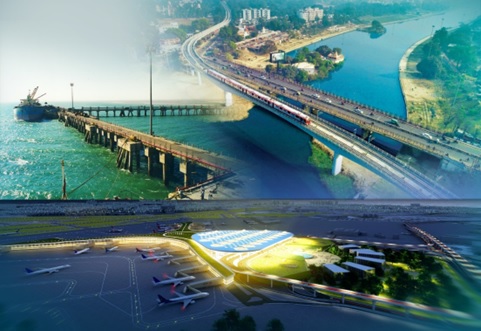Transportation infrastructure is a leading factor for the economic development of a nation. India is witnessing a tremendous change in transportation arena with lot of government initiatives to ensure a world class transportation infrastructure in the country. There is a high demand for Mass Rapid Transit System like Metros due to the rapid increase in population in a country like India. Adopting sustainable and smart technologies like High-speed rail technologies, Maglev Train etc., are considered for the infrastructure projects currently underway across the nation. The master planning and design of new airports, expansion and rehabilitation of existing airports assume significance in this context. Seaports are gaining momentum due to the increase in cargo. With new projects coming up in rail, road and air transportation sectors, equipping the students with the knowledge of current practices and making them industry ready is the dire need of the hour. This course on ‘Transportation Infrastructure Engineering (TIE)’ aims to improve the competency skills of the learners, to take up new roles in the execution of these projects.
The "Transportation Infrastructure Engineering" course aims to stimulate learners' critical thinking regarding current industrial practices and challenges in the execution of transportation infrastructure projects. The course coverage includes tunnelling, deep excavation support systems, viaduct erections, planning of modern airports, runway orientation, terminal buildings, types of marine structure, material selection and construction practices in flexible and rigid pavements. This course, which is carefully curated by industry experts along with case studies enables learners to get a good insight and understanding of the best practices available in the industry in Metro rail, Airports and Highway Engineering.

Fundamentals of Highway and Railway engineering, Soil Mechanics, Structural analysis is preferable.
20 hours of self-paced interactive learning, including summative assessment and expert live interactions
Upon completion of this course the learner will be able to:
![]() Create the basic layout of elevated and underground metro stations as per laid down codes and regulations.
Create the basic layout of elevated and underground metro stations as per laid down codes and regulations.
![]() Plan the various infrastructure elements on airside, landside, terminal building and navigational aids to support the operations of airports.
Plan the various infrastructure elements on airside, landside, terminal building and navigational aids to support the operations of airports.
![]() Comprehend the requirements of airport, Metros, Seaports and highways and the associated service requirements.
Comprehend the requirements of airport, Metros, Seaports and highways and the associated service requirements.
![]() Evaluate the suitability of materials for pavement construction.
Evaluate the suitability of materials for pavement construction.
![]() Apply suitable construction practices for construction of Rigid and flexible pavements and highways.
Apply suitable construction practices for construction of Rigid and flexible pavements and highways.
© BITS - L&T EduTech , All Rights Reserved.
Designed by IT Services Unit BITS Pilani, Pilani Rajasthan.
Visitor Count -
